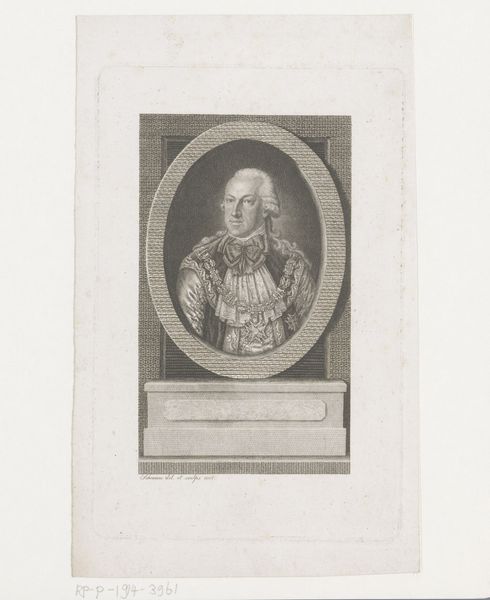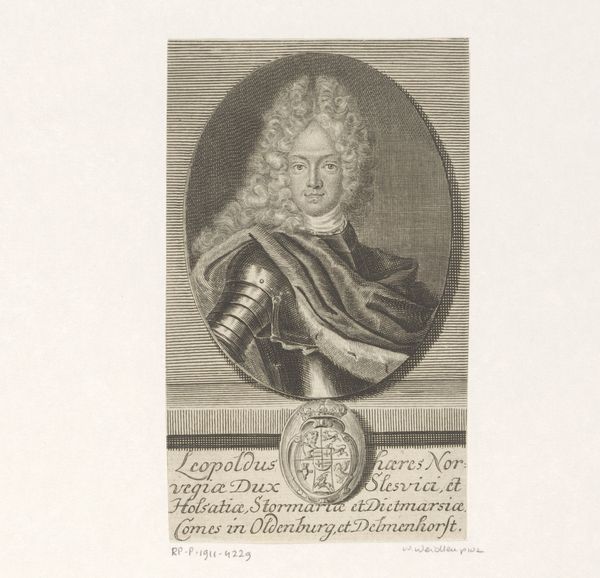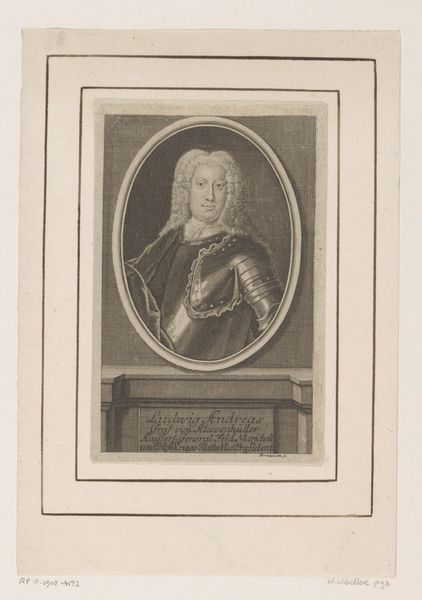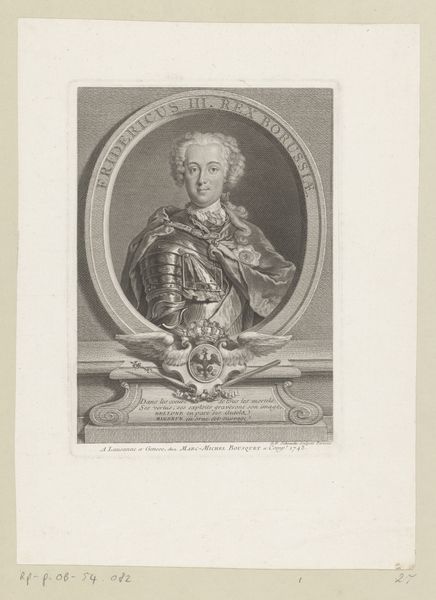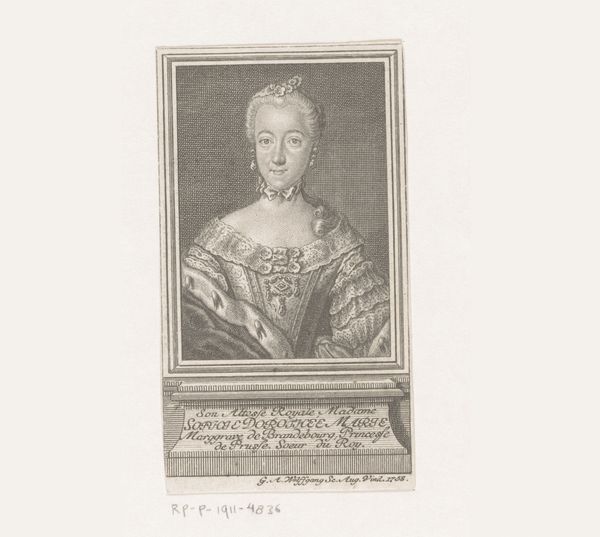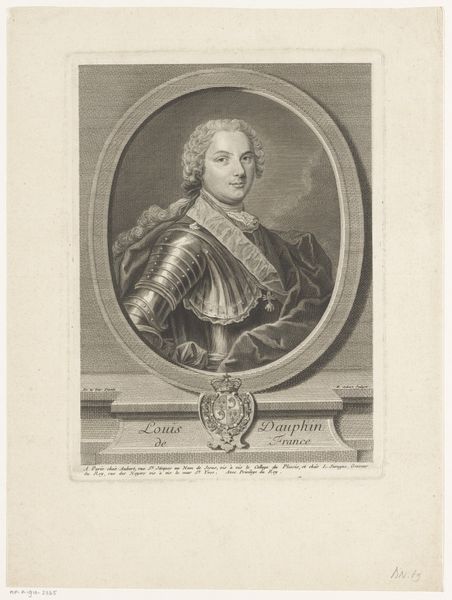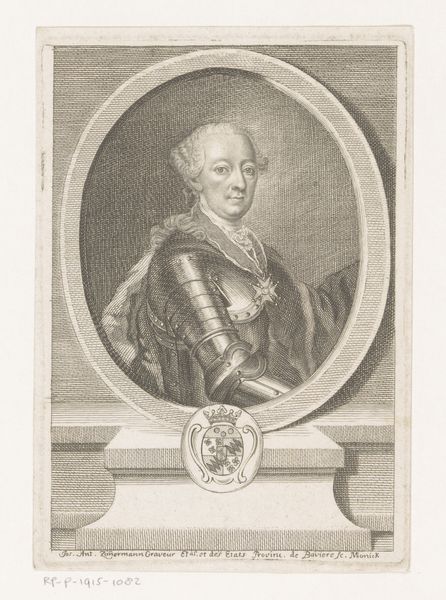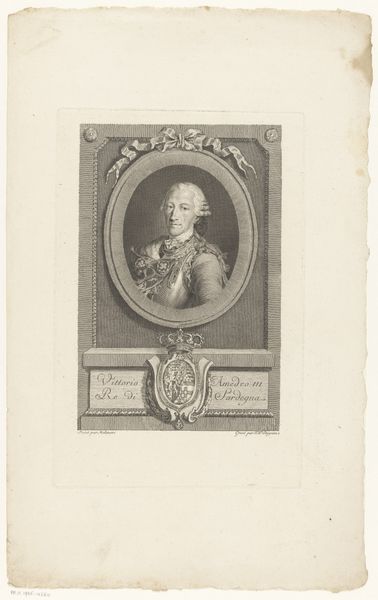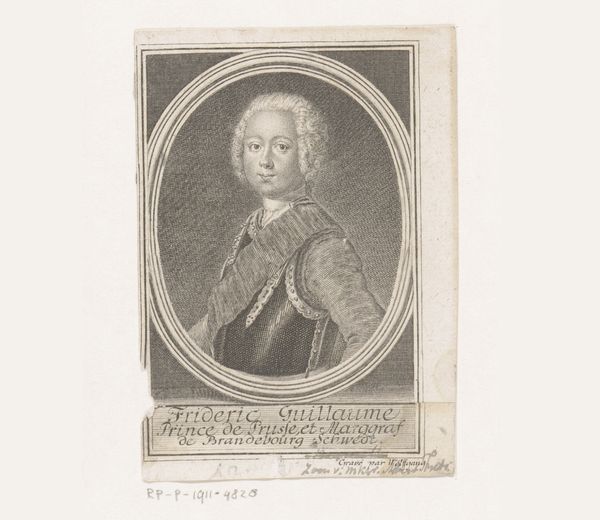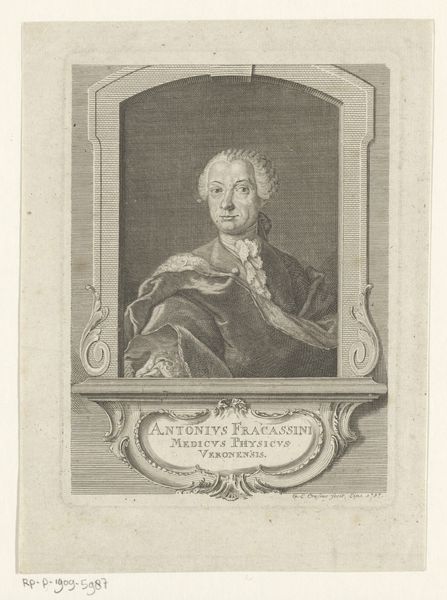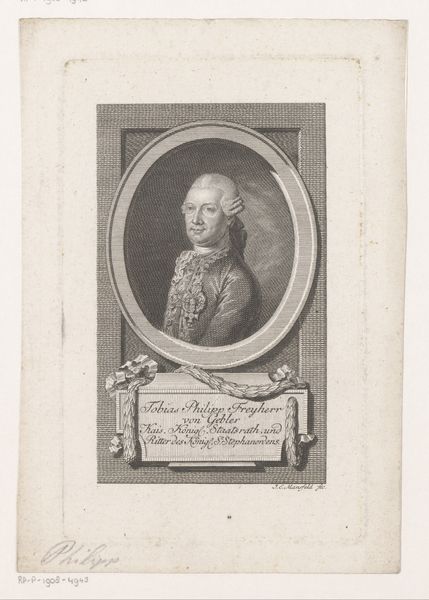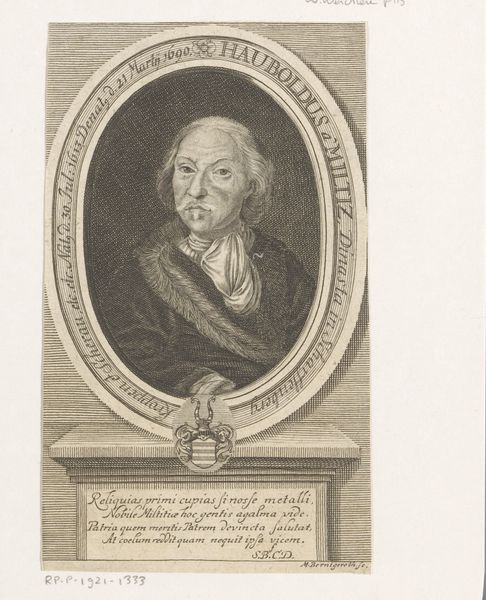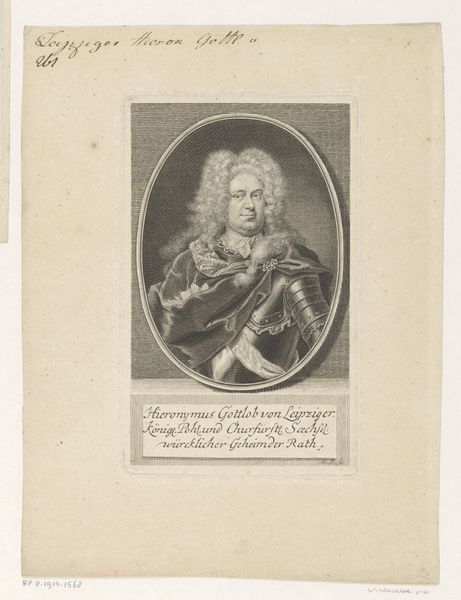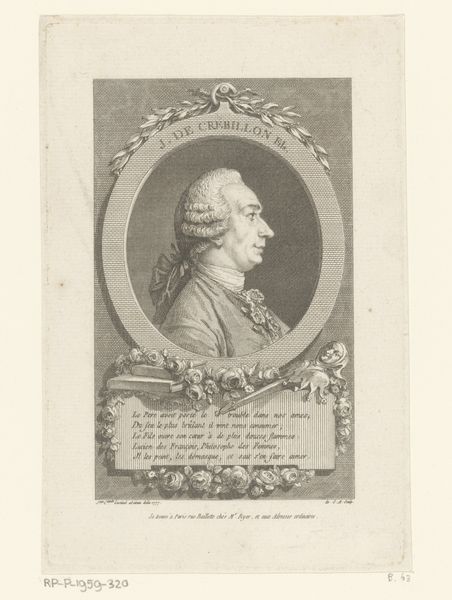
Portret van Friedrich Heinrich, Markgraf von Brandenburg-Schwedt 1759
0:00
0:00
gustavandreas16921775wolfgang
Rijksmuseum
engraving
#
portrait
#
baroque
#
engraving
Dimensions: height 92 mm, width 51 mm
Copyright: Rijks Museum: Open Domain
This engraving of Friedrich Heinrich, Margrave of Brandenburg-Schwedt, was made in 1750 by Gustav Andreas Wolfgang. At this time, the visual codes of portraiture were deeply embedded in the politics of imagery. The Margrave is shown in armour, with an ornate sash and cross, symbols of military and aristocratic power. This imagery would have been very familiar in the German-speaking lands of the mid-18th century. The print was produced at a time when the Holy Roman Empire was fragmenting into competing territorial states. Aristocrats would employ particular aesthetic strategies to shore up their legitimacy, and portraiture played a key role. Art historians consult a range of resources to better understand such images. Genealogical records help us understand the importance of family ties; military histories shed light on the significance of representing the Margrave in armour. These resources help us understand the social conditions that shaped the production and reception of art in the 18th century.
Comments
No comments
Be the first to comment and join the conversation on the ultimate creative platform.
